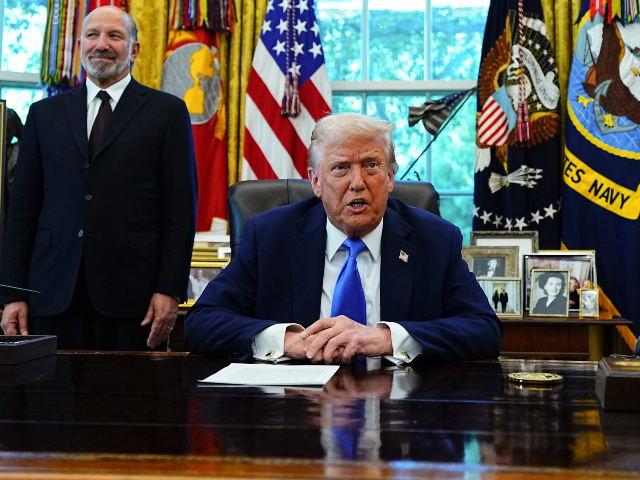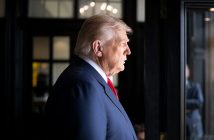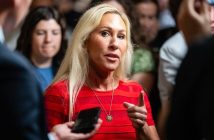President Donald Trump issued a proclamation accusing U.S. companies of sidelining skilled American graduates in favor of cheaper, mixed-skill, imported visa workers.
“The H-1B nonimmigrant visa program…. has been deliberately exploited to replace, rather than supplement, American workers with lower-paid, lower-skilled labor,” said Trump’s proclamation, which adds:
The large-scale replacement of American workers through systemic abuse of the program has undermined both our economic and national security.
The proclamation, titled “Restriction on Entry of Certain Nonimmigrant Workers,” directed agencies to begin fixing the nation’s shredded professional sector by charging a $100,000 fee for the arrival of each foreigner hired via the H-1B program. It also directed federal agencies to reduce fraud and exclude foreign workers from the career-starting jobs needed by talented U.S. graduates.
The proclamation is a landmark event in D.C., where politicians, pundits, and reporters have long ignored the huge scale and damage of the investor-backed visa programs. Commerce Secretary Howard Lutnick told reporters that the proclamation’s message to U.S. employers is: “You’re going to train one of the recent graduates from one of the great universities across our land, train Americans… Stop bringing in people to take our jobs. That’s the policy here.”
So far, journalists have ignored the vast damage caused to U.S. innovation and families by this foreign workforce, despite much evidence. The proclamation says 2.5 million visa workers now hold one-in-four tech jobs that would otherwise be held by American graduates.
The new pro-American policy — if implemented — will likely be welcomed by millions of American professionals, many of whom have been sidelined as foreign-born hiring managers quietly sell the jobs to kickback-paying Indian graduates, via online markets that are obscured by Indian languages and laws, by corporate support, and by tacit federal agreement. “The stress of rejection is unbearable, along with the looming threat of financial insecurity,” sidelined professional Katie Gallagher told the New York Times. “I have never felt depression like this before in my life.”
Currently, Trump has low ratings with these white-collar voters.
Lawsuits and Loopholes
Those agency tasks will be difficult to implement because lawyers for H-1B companies immediately found loopholes in the President’s proclamation.
“This is only for the new H-1Bs coming from outside the country,” said Rehul Reddy, a Texas-based lawyer who works with many companies that employ visa workers. “If somebody is already in the United States, if they are filing for a [three-year] extension of H-1B status, this proclamation is not applicable,” he said.
The vast majority of H-1Bs extend their status every three years, creating a massive workforce of at least 700,000 H-1Bs in jobs that would otherwise go to American graduates.
“The wording of the H-1B fee proclamation is very vague,” said immigration lawyer Leon Fresco. “But it appears… this $100,000 fee will not apply to foreign students at U.S. universities who are changing their status” from F-1 student visas to H-1B or J-1 visas, said Fresco, who was a staffer for Sen. Chuck Schumer (D-NY) during the Democrats’ 2013 “Gang of Eight” amnesty disaster.
The university angle is important because George W. Bush’s Optional Practical Training (OPT) and Curricular Practical Training (CPT) programs granted tax-exempt work permits to roughly 400,000 foreign graduates in 2024. That total is roughly three times as many new H-1B visas granted in 2024.
Many of those CPT and OPT graduates snag career-starting jobs via their ethnic hiring networks, and often with promises to kick back part of their salaries to hiring managers. The discriminatory black-market in U.S. jobs pushes skilled American graduates out of tech careers and future management jobs.
The president’s instruction also allows officials to exempt industries from the new H-1B curbs. “It will be interesting to see who gets an exemption,” said Fresco, who also works as a lobbyist for some of the roughly 600,000 resident Indian visa workers who are working while waiting to get an employer-approved green card.
Continue reading: Breitbart.com





Leave a Reply